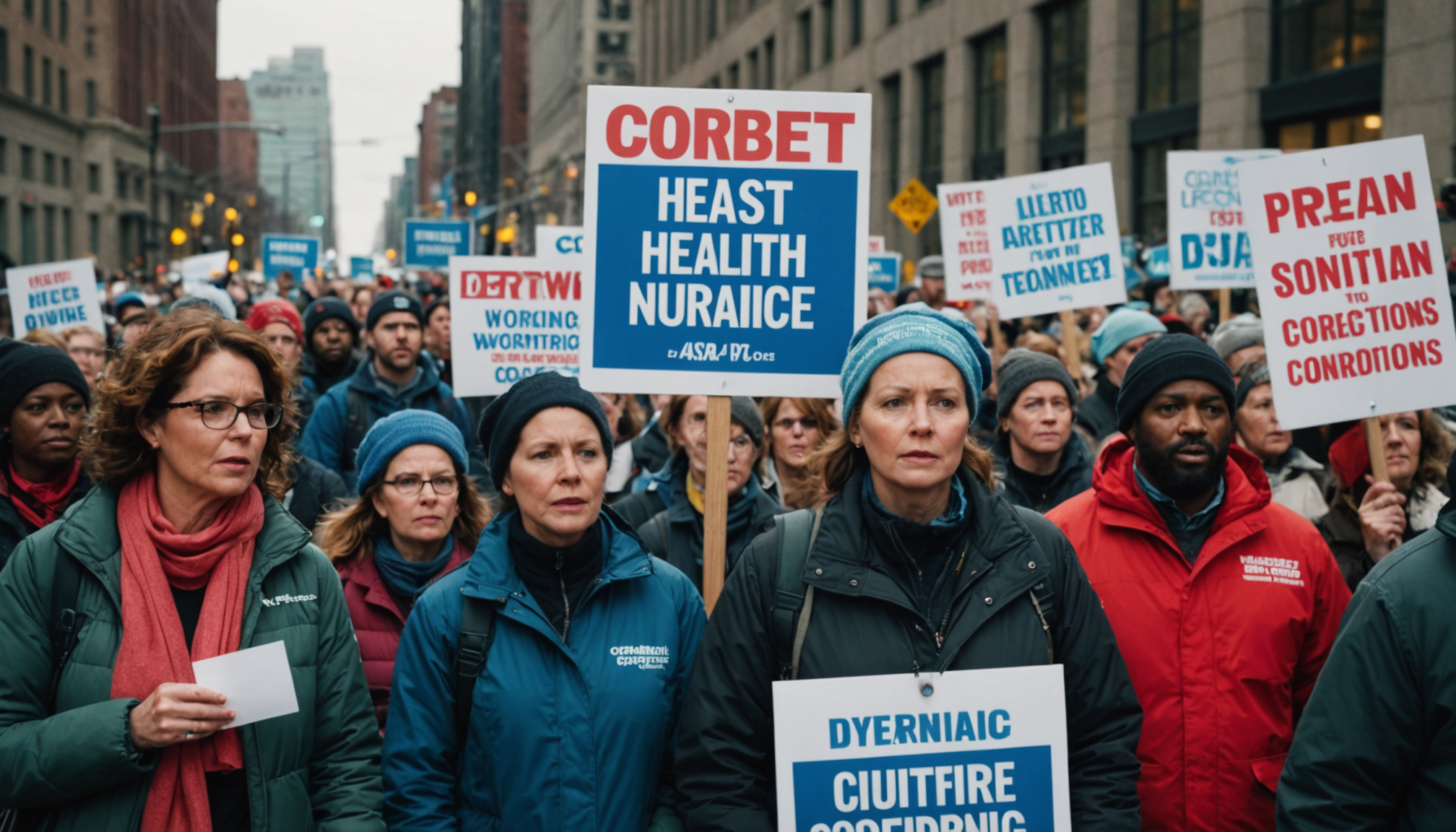
Corewell Health East Nurses Rally for Fair Labor Practices and Safe Working Conditions
Introduction
On Saturday, nurses at Corewell Health East gathered at the Southfield Center to demand an end to what they describe as attacks on essential healthcare workers. The rally emphasized the need for fair wages, safe working environments, and recognition of understaffing issues. This event aligns with several Sustainable Development Goals (SDGs), particularly SDG 3 (Good Health and Well-being), SDG 8 (Decent Work and Economic Growth), and SDG 10 (Reduced Inequalities).
Background and Context
The nurses, represented by Teamsters Local 2024, are preparing for collective bargaining negotiations scheduled to begin shortly. They seek industry-leading wages, healthcare benefits, retirement security, and an end to excessive overtime. The union represents nearly 10,000 nurses across nine campuses.
Key Demands and Issues Raised
- Fair Compensation and Benefits
- Wage increases and bonuses withheld from unionized nurses.
- Denial of 403(b) retirement matches to union employees.
- Comparison of executive salaries highlighting income inequality.
- Safe Working Conditions
- Addressing dangerous understaffing, especially in Intensive Care Units.
- Reducing nurse-to-patient ratios to safer levels.
- Ending excessive overtime to prevent burnout and injuries.
- Recognition and Respect for Healthcare Workers
- Opposition to corporate practices that prioritize profit over patient care.
- Call for acknowledgment of nurses’ essential role in healthcare delivery.
Statements from Stakeholders
- Willow Bronson, Nurse: Highlighted the unsafe work environment and the need for protection.
- Katherine Wallace, Registered Nurse: Called out corporate greed and emphasized unity among nurses and community leaders.
- Mark Geary, Corewell Health Senior Director of Communications: Affirmed commitment to good faith bargaining and reaching a mutually agreeable contract.
- Fred Zuckerman, Teamsters Secretary General: Indicated readiness to utilize a $400 million strike fund if negotiations fail, stressing the importance of employer-provided healthcare and livable working conditions.
- Alison Lorentz, Nurse and Case Manager: Criticized the corporatization of healthcare and its impact on patient outcomes and staff welfare.
Community and Political Support
The rally attracted over a hundred nurses, including those off-duty and between shifts, along with family members and pets. Speakers included Michigan Secretary of State Jocelyn Benson, Genesee County Sheriff and gubernatorial candidate Christopher Swanson, and several Corewell nurses. Their presence underscores the broader societal importance of the nurses’ demands and the alignment with SDG 16 (Peace, Justice, and Strong Institutions) through advocacy for fair labor rights.
Implications for Sustainable Development Goals
- SDG 3: Good Health and Well-being — Ensuring safe working conditions and adequate staffing supports quality healthcare delivery and patient safety.
- SDG 8: Decent Work and Economic Growth — Advocating for fair wages, benefits, and labor rights promotes sustained, inclusive economic growth and decent work for all healthcare workers.
- SDG 10: Reduced Inequalities — Addressing wage disparities and unequal treatment between union and non-union employees helps reduce inequalities within the healthcare workforce.
- SDG 16: Peace, Justice, and Strong Institutions — The collective bargaining process and union representation contribute to inclusive decision-making and equitable labor relations.
Conclusion
The Corewell Health East nurses’ rally highlights critical challenges in the healthcare sector related to labor rights, workplace safety, and equitable treatment. Their demands resonate with global sustainable development priorities, emphasizing the need for systemic changes that support healthcare workers and improve patient care. The upcoming negotiations represent a pivotal opportunity to advance these goals and foster a healthier, more just working environment.
1. Sustainable Development Goals (SDGs) Addressed or Connected
- SDG 3: Good Health and Well-being
- The article discusses nurses demanding safer working conditions, adequate staffing, and better healthcare benefits, directly relating to ensuring healthy lives and promoting well-being.
- SDG 8: Decent Work and Economic Growth
- The nurses’ demands for fair wages, bonuses, retirement security, and collective bargaining rights connect to promoting inclusive and sustainable economic growth, employment, and decent work for all.
- SDG 10: Reduced Inequalities
- The issue of unionized nurses being denied wage increases and bonuses given to non-union employees highlights inequalities within the workplace.
2. Specific Targets Under Those SDGs Identified
- SDG 3: Good Health and Well-being
- Target 3.8: Achieve universal health coverage, including financial risk protection and access to quality essential healthcare services.
- Target 3.d: Strengthen the capacity of all countries for early warning, risk reduction, and management of health risks, including safe working environments for healthcare workers.
- SDG 8: Decent Work and Economic Growth
- Target 8.5: Achieve full and productive employment and decent work for all women and men, including equal pay for work of equal value.
- Target 8.8: Protect labor rights and promote safe and secure working environments for all workers.
- SDG 10: Reduced Inequalities
- Target 10.3: Ensure equal opportunity and reduce inequalities of outcome, including eliminating discriminatory practices in the workplace.
3. Indicators Mentioned or Implied to Measure Progress
- For SDG 3
- Indicator on nurse-to-patient ratios in Intensive Care Units (e.g., one nurse to three patients vs. safer ratios of one to one or one to two), measuring safe working conditions and quality of care.
- Incidence of workplace injuries among nurses, implied by reports of physical injuries from patients.
- For SDG 8
- Indicator on wage increases and bonuses received by unionized versus non-unionized workers, reflecting fair remuneration.
- Number of collective bargaining agreements reached and the presence of union representation.
- Overtime hours worked and staffing levels as measures of decent work conditions.
- For SDG 10
- Indicators on wage disparities and benefit inequalities between unionized and non-unionized staff.
4. Table: SDGs, Targets and Indicators
| SDGs | Targets | Indicators |
|---|---|---|
| SDG 3: Good Health and Well-being |
|
|
| SDG 8: Decent Work and Economic Growth |
|
|
| SDG 10: Reduced Inequalities |
|
|
Source: detroitnews.com






